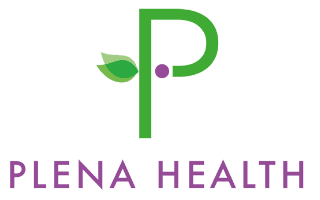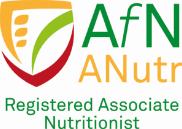Menstrual health
Because periods shouldn’t be purgatory
The importance of regular cycles
Regular ovulation (the releasing of an egg from our ovaries) is a sign of health and fertility. The experience is different for every woman, but we all have to learn to cope with and embrace the change in our bodies as we grow as a woman.
For most women, this has minimal impact on our lives. But for some, the cramping, mood swings, embarrassment and exhaustion can be overwhelming.
It shouldn’t be like that.
The thought that this is something you may have to handle for the next 40 years or so is daunting, to say the least.
But periods don’t have to be this painful. You shouldn’t have to worry about embarrassing yourself or feel that you can’t live your life normally for one week in every four.
If periods are causing you real distress, it’s a sign that your general health is out of line, too. Your body is not getting the nutrients it needs for optimum health.
You can change things
Addressing hormonal imbalances will mean you can:
experience a regular, normal menstrual cycle and uncomplicated periods
enjoy life and plan ahead with confidence
feel energised and upbeat all the time
look forward to successful conception, pregnancy and maternal health
focus on your career and relationships without fear of losing a week every month
How good nutrition affects your menstrual health
Your menstrual cycle is controlled by the interaction of three key hormones: oestrogen, progesterone and testosterone. Different types of food can affect these hormones and so impact on your periods.
Only a full nutritional assessment will be able to pinpoint what is lacking or needs attention. Think of your body as a machine where all parts are connected. If any part is out of kilter, there will be a knock-on effect throughout the whole. Only when all the different parts are working correctly, will the machine run properly.
Understanding your hormones
Roll over the images to see information about the nutrients
Vitamin D
Oily fish, liver, egg yolks.
Deficiency can cause irregular periods.
Calcium
Cheese, seeds, sardines.
Reduces PMS symptoms.
POTASSIUM
Bananas, avocados.
Reduces bloating and relieves menstrual cramps.
Magnesium
Dark Chocolate, Avocados, Cashew nuts, Kale.
Can relieve bloating.
Vitamin C
Broccoli, brussels sprouts, peppers.
Helps absorption of iron which supports progesterone
Vitamin E
Avocados, almonds, pine nuts.
Can help reduce menstrual pain.
Fibre
Raspberries, artichoke, lentils, kidney beans.
Encourages regular bowel movements and a healthy oestrogen balance
Sulforaphane
Cruciferous vegetables like brussels sprouts and cauliflower.
Improves symptoms of PMS.
B VitaminS
Tuna, beets, chicken, eggs, milk, spinach, kale, red meat.
Antioxidant powerhouses. B6 supports production of serotonin – controls moods, helps with sleep and regulates appetite
Healthy fats
Extra-virgin olive oil, coconut oil, butter from grass-fed animals and fats found in fish high in Omega 3 (like salmon and tuna)
Support the production of anti-inflammatory prostaglandins. Used by the liver to make cholesterol, which is needed to synthesise oestrogen, testosterone and progesterone
proteins
Complete protein foods (source of all nine essential amino acids) include red meat, fish, eggs, quinoa and lentils.
Supports the development of hormones like insulin. Composed of amino acids, nine of which are essential as the body can’t make them.
With us, it’s personal
Every woman is unique and reacts to food in different ways, so every Plena Health client benefits from an individual assessment and receives a personalised nutritional profile.
Often, we believe that our diet is healthy, but it may be lacking specific nutrients or the quality of the food we eat may not be sufficient to support our body’s requirements.
Different dietary approaches can require specific solutions. One such example is vegan/vegetarian diets which are typically lacking Vitamin B12 – critical for detoxifying oestrogen. This essential vitamin is only found in animal protein, so vegans and vegetarians will likely need to supplement.
A low nutrient diet with highly processed food, may lead to a lack of good quality fats, critical for hormone support. Small changes can make a huge difference.
Maintaining blood sugar balance is critical to hormonal balance. If blood sugar imbalance continues for a long time, there is a danger of developing insulin resistance. At Plena Health, we focus on understanding the amount and types of carbohydrates in your diet, how you use carbohydrates and the steps needed to restore blood sugar balance and improve your metabolic flexibility.
21-year-old University student Ashna came to see us with a history of heavy, irregular periods, skin problems, digestion issues, headaches, mood swings and fatigue that made every month a misery.
Her diet was high in processed carbs, sugar and deficient in essential macronutrients, protein and fats and micronutrients essential to support a young healthy adult.
“I craved sugar,” she said, “I mostly ate convenience foods on the go. I always started my day with a large latte at the Uni coffee shop, ate ready meals, drank alcohol on a regular basis and was always snacking late at night”.
Ashna had tried using the combined oral contraceptive pill, which made her periods lighter, but increased breast tenderness and made her headaches worse.




